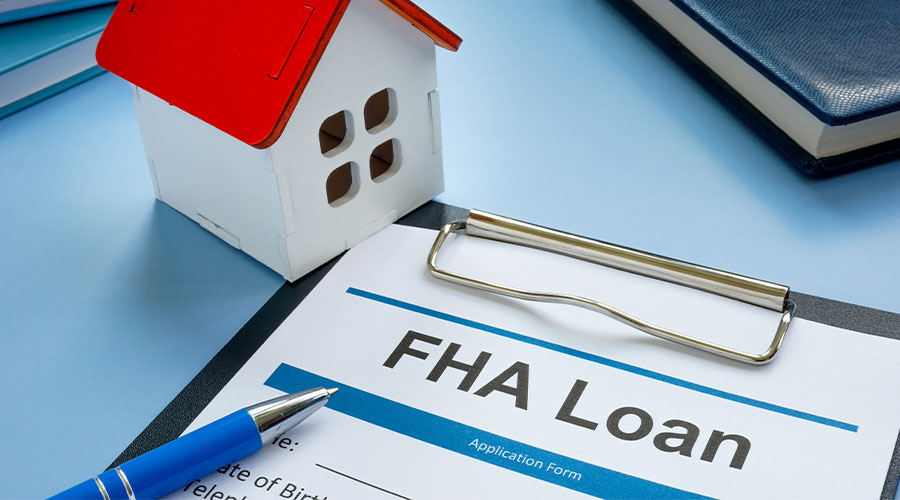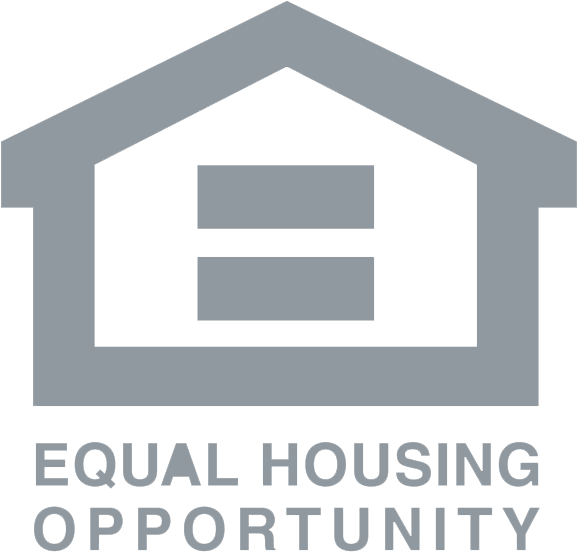
FHA LOANS
FHA loans are mortgage loans backed by the Federal Housing Administration (FHA), designed to make homeownership more accessible, especially for first-time homebuyers. With more flexible qualification criteria, lower down payment requirements, and options for borrowers with less-than-perfect credit, FHA loans help those who may not meet the stringent criteria of conventional loans. The FHA insures these loans, reducing the risk for lenders, which in turn allows them to offer favorable terms to borrowers.
Although the FHA does not lend money directly or set interest rates, it acts as a safety net for lenders by insuring the loans against default. This makes FHA loans an excellent option for individuals seeking a more accessible path to homeownership.
While the FHA does not issue loans directly, it insures them. If a borrower defaults, the lender receives compensation from the FHA’s insurance fund, minimizing their risk. FHA loans have become a popular choice due to the following benefits:
- Low Down Payment: FHA loans allow you to purchase a home with as little as 3.5% down, making homeownership more attainable for those with limited savings.
- Ideal for First-Time Homebuyers: FHA loans are especially beneficial for first-time homebuyers who may not have the resources for a large down payment.
- Flexible Qualification Criteria: FHA loans are more forgiving for borrowers with lower credit scores or inconsistent financial histories, making them a great option for those who may not qualify for conventional loans.
- Down Payment Assistance: FHA loans can be paired with down payment assistance programs to help cover down payments and closing costs, further reducing the upfront financial burden.
Employment and Income:
- Complete tax returns for the last two years.
- W-2 and 1099 statements from the past two years.
- Pay stubs for the last two months.
- If self-employed, tax returns and year-to-date profit & loss statements for the past three years.
Savings
- Complete bank statements for all accounts (past three months).
- Recent account statements for retirement funds, 401(k), mutual funds, money market accounts, stocks, etc.
Credit
- Recent bills and statements, including account numbers and minimum payments.
- Landlord information (name, address, phone number) or 12 months of rent receipts.
- Recent utility bills to help supplement thin credit.
- Bankruptcy and discharge papers (if applicable).
- 12 months of canceled checks for any loans or credit accounts you co-signed, showing you’re not making the payments.
Personal
- Driver’s license and Social Security card.
- Divorce, palimony, alimony, or child support documents (if applicable).
- Green card or work permit (if applicable).
- Homeownership documents.
Refinancing or Rental Property Ownership
- Current loan note and deed.
- Property tax bill.
- Homeowner’s insurance policy.
- Payment coupon for the current mortgage.
- Rental agreements for multi-unit properties.
When applying for an FHA loan, it’s important to understand your affordability. Typically, your monthly housing costs should not exceed 29% of your gross monthly income. This calculation includes principal, interest, taxes, and insurance (PITI). Here’s an example:
- Monthly Income: $3,000
- Maximum PITI: $3,000 x 0.29 = $870
Additionally, your total monthly costs, including long-term debts like car loans and credit cards, should not exceed 41% of your gross monthly income. For example:
- Monthly Income: $3,000
- Maximum Total Monthly Costs: $3,000 x 0.41 = $1,230
- Remaining for Long-Term Debt: $1,230 – $870 (PITI) = $360 allowed for long-term debt.
FHA loan ratios are more flexible than those for conventional loans, which can benefit borrowers with higher debt-to-income ratios.
Filing for bankruptcy doesn’t automatically disqualify you from obtaining an FHA loan. Depending on the type of bankruptcy, there are specific guidelines to follow:
- Chapter 7 Bankruptcy: You may qualify for an FHA loan two years after the discharge date, provided you have re-established credit and haven’t had any major credit issues (late payments, collections, etc.) since the bankruptcy.
- Chapter 13 Bankruptcy: You may be eligible for an FHA loan after one year of repayment, as long as you have court permission and have maintained a good payment history.
In some cases, exceptions may be made for borrowers who experienced extenuating circumstances, such as serious medical conditions that led to bankruptcy. Consulting with a mortgage professional can help you understand your options and determine the best course of action.
- Lower Credit Scores Accepted: FHA loans are accessible to borrowers with credit scores as low as 580, and sometimes even lower, depending on the lender’s specific requirements.
- Mortgage Insurance: FHA loans require mortgage insurance premiums (MIP), which consist of both an upfront premium and an annual premium that is included in your monthly payments. MIP is generally required for the life of the loan unless you refinance into a conventional loan.
- Property Standards: FHA loans have specific property standards, ensuring that the home is safe, sound, and secure. This can limit your options if you’re looking to buy a fixer-upper or a property in need of significant repairs.
- Refinancing Options: FHA loans offer refinancing options, including the FHA Streamline Refinance, which allows you to refinance your existing FHA loan with reduced documentation and underwriting, often resulting in a faster and more cost-effective process.
COURSE TUTORS
Joining Over 800,000 Students Enjoying Avada Education now
Become Part of Avada University to Further Your Career.

FHA LOANS
FHA loans are mortgage loans backed by the Federal Housing Administration (FHA), designed to make homeownership more accessible, especially for first-time homebuyers. With more flexible qualification criteria, lower down payment requirements, and options for borrowers with less-than-perfect credit, FHA loans help those who may not meet the stringent criteria of conventional loans. The FHA insures these loans, reducing the risk for lenders, which in turn allows them to offer favorable terms to borrowers.
Although the FHA does not lend money directly or set interest rates, it acts as a safety net for lenders by insuring the loans against default. This makes FHA loans an excellent option for individuals seeking a more accessible path to homeownership.
While the FHA does not issue loans directly, it insures them. If a borrower defaults, the lender receives compensation from the FHA’s insurance fund, minimizing their risk. FHA loans have become a popular choice due to the following benefits:
- Low Down Payment: FHA loans allow you to purchase a home with as little as 3.5% down, making homeownership more attainable for those with limited savings.
- Ideal for First-Time Homebuyers: FHA loans are especially beneficial for first-time homebuyers who may not have the resources for a large down payment.
- Flexible Qualification Criteria: FHA loans are more forgiving for borrowers with lower credit scores or inconsistent financial histories, making them a great option for those who may not qualify for conventional loans.
- Down Payment Assistance: FHA loans can be paired with down payment assistance programs to help cover down payments and closing costs, further reducing the upfront financial burden.
Employment and Income:
- Complete tax returns for the last two years.
- W-2 and 1099 statements from the past two years.
- Pay stubs for the last two months.
- If self-employed, tax returns and year-to-date profit & loss statements for the past three years.
Savings
- Complete bank statements for all accounts (past three months).
- Recent account statements for retirement funds, 401(k), mutual funds, money market accounts, stocks, etc.
Credit
- Recent bills and statements, including account numbers and minimum payments.
- Landlord information (name, address, phone number) or 12 months of rent receipts.
- Recent utility bills to help supplement thin credit.
- Bankruptcy and discharge papers (if applicable).
- 12 months of canceled checks for any loans or credit accounts you co-signed, showing you’re not making the payments.
Personal
- Driver’s license and Social Security card.
- Divorce, palimony, alimony, or child support documents (if applicable).
- Green card or work permit (if applicable).
- Homeownership documents.
Refinancing or Rental Property Ownership
- Current loan note and deed.
- Property tax bill.
- Homeowner’s insurance policy.
- Payment coupon for the current mortgage.
- Rental agreements for multi-unit properties.
When applying for an FHA loan, it’s important to understand your affordability. Typically, your monthly housing costs should not exceed 29% of your gross monthly income. This calculation includes principal, interest, taxes, and insurance (PITI). Here’s an example:
- Monthly Income: $3,000
- Maximum PITI: $3,000 x 0.29 = $870
Additionally, your total monthly costs, including long-term debts like car loans and credit cards, should not exceed 41% of your gross monthly income. For example:
- Monthly Income: $3,000
- Maximum Total Monthly Costs: $3,000 x 0.41 = $1,230
- Remaining for Long-Term Debt: $1,230 – $870 (PITI) = $360 allowed for long-term debt.
FHA loan ratios are more flexible than those for conventional loans, which can benefit borrowers with higher debt-to-income ratios.
Filing for bankruptcy doesn’t automatically disqualify you from obtaining an FHA loan. Depending on the type of bankruptcy, there are specific guidelines to follow:
- Chapter 7 Bankruptcy: You may qualify for an FHA loan two years after the discharge date, provided you have re-established credit and haven’t had any major credit issues (late payments, collections, etc.) since the bankruptcy.
- Chapter 13 Bankruptcy: You may be eligible for an FHA loan after one year of repayment, as long as you have court permission and have maintained a good payment history.
In some cases, exceptions may be made for borrowers who experienced extenuating circumstances, such as serious medical conditions that led to bankruptcy. Consulting with a mortgage professional can help you understand your options and determine the best course of action.
- Lower Credit Scores Accepted: FHA loans are accessible to borrowers with credit scores as low as 580, and sometimes even lower, depending on the lender’s specific requirements.
- Mortgage Insurance: FHA loans require mortgage insurance premiums (MIP), which consist of both an upfront premium and an annual premium that is included in your monthly payments. MIP is generally required for the life of the loan unless you refinance into a conventional loan.
- Property Standards: FHA loans have specific property standards, ensuring that the home is safe, sound, and secure. This can limit your options if you’re looking to buy a fixer-upper or a property in need of significant repairs.
- Refinancing Options: FHA loans offer refinancing options, including the FHA Streamline Refinance, which allows you to refinance your existing FHA loan with reduced documentation and underwriting, often resulting in a faster and more cost-effective process.
COURSE TUTORS
Joining Over 800,000 Students Enjoying Avada Education now
Become Part of Avada University to Further Your Career.
-
First-Time Homebuyer Guide to MortgagesMarch 15th, 2016
-
The Ultimate Guide to Home Mortgage RefinancingOctober 1st, 2024
-
The Loan ProcessOctober 18th, 2024
-
First-Time Homebuyer Guide to MortgagesMarch 15th, 2016
-
The Ultimate Guide to Home Mortgage RefinancingOctober 1st, 2024
-
The Loan ProcessOctober 18th, 2024
- No comments have been published yet.









